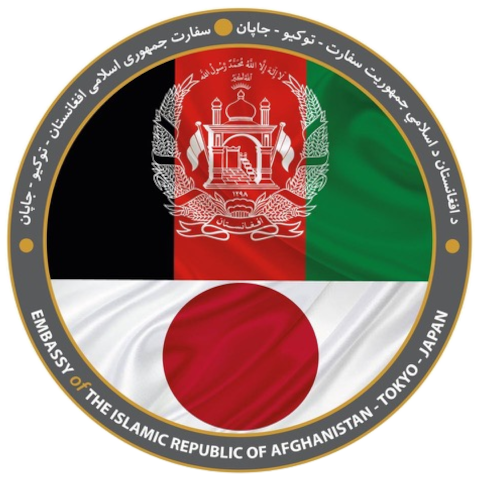Partners/Committee Members
International Advisory Committee
Ari NOVY (Chair)
President and CEO, San Diego Botanic Garden
Ari Novy is President and CEO of the San Diego Botanic Garden in Encinitas, CA, a 37- acre facility with extensive collections of Mediterranean climate plants as well as award winning children’s gardens.
Dr. Novy is a plant biologist with a wide range of expertise in plant science and education. He started his career in student support services with New York University, worked as an estate gardener in Italy, researched sustainable agriculture in the Philippines, and served as an environmental consultant on infrastructure projects in the northeastern United States. He completed his graduate work at Rutgers University in New Jersey, where he conducted research on plant population genetics, invasive species, plant conservation, horticultural improvement, agronomic risk assessment, beekeeping management, plant evolution and agricultural economics and policy. While at Rutgers, he taught undergraduate and graduate courses on a variety of plant science and horticultural topics, winning several awards for research, teaching and outreach excellence.
Before joining San Diego Botanic Garden, Novy was Chief Scientist at the Leichtag Foundation, also in Encinitas, CA and before that Executive Director of the United States Botanic Garden in Washington, D.C. As Executive Director of the U.S. Botanic Garden, he also sat on the Executive Leadership Team of the U.S. Architect of the Capitol, the federal agency responsible for the management and upkeep of the U.S. Capitol Campus, including the U.S. Botanic Garden, U.S. Capitol, Library of Congress and Supreme Court.
Novy remains an active researcher, holding an appointment as Research Collaborator at the Smithsonian Institution, National Museum of Natural History and Visiting Scholar at University of California-San Diego. He is the author of numerous peer-reviewed scientific papers and regularly speaks on various horticultural and botanical topics nationally and internationally. He is the founding co-chair of the Food and Agriculture Professional Section of the American Public Gardens Association. He has served on task forces and advisory panels for diverse groups including the White House Council on Environmental Quality, the Cornell Alliance for Science, Botanic Garden Conservation International, Rock Creek National Park, the Garden Club of America, the European and Mediterranean Plant Protection Organization, and many others. He has a deep passion for translating science into best management practices and public education. He is immensely proud of having been a science advisor for the most recent seasons of The Magic School Bus.
Novy completed his Bachelor of Arts degree at New York University and his doctorate at Rutgers University. He was born in Michigan but grew up in New Jersey. He currently lives in Encinitas, California with his wife and two sons.
Abby MEYER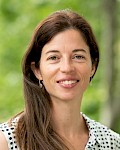
Executive Director, Botanic Gardens Conservation International U.S.
Abby Meyer is Executive Director of the U.S. office of Botanic Gardens Conservation International, based at The Huntington Library and Botanical Gardens in Los Angeles, California. Meyer works to develop tools and information to support botanic garden plant conservation programs and collections. She received a Bachelor’s of Science degree from the University of Nebraska-Lincoln and went on to complete a Master’s in Public Horticulture Administration through the Longwood Graduate Program at the University of Delaware and Longwood Gardens.
Prior to her work with BGCI, she was a Putnam Research Fellow at The Arnold Arboretum of Harvard University where she developed new approaches for assessing the conservation value of living plant collections. Now in Los Angeles, Meyer enjoys hiking and gardening with her husband Evan and their 3-year old daughter Violet.
Michael A. FORS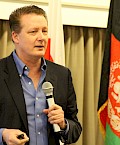
Executive Leader, Corporate Division and Business Unit Development, Boeing
Michael A. Fors, Ph.D., is Executive Leader of corporate division and business unit development at Boeing. His team works to transform the business and develop workforces systematically as part of the 4th industrial revolution. Before Boeing, he was an Executive Leader at Microsoft, digitally transforming Microsoft divisions. Michael led a P&L comprised of 350 ex-CIO consultants, who digitally transform Microsoft customers. Michael also led a business strategy team working across Microsoft divisions. Before Microsoft, Michael was Chief Learning Officer of Intel University. Michael is an adjunct professor at Stanford University, Columbia University, and the University of Washington, teaching innovation, entrepreneurship, the Future of Work, and Leadership/Executive Development. Michael is a member of the World Economic Forum, the Global Engineering Deans’ Council, ReWork America, & the International Federation of Engineering Education Societies. Michael is Chairman of the Board for the United Nations Institute for Training and Research Division for Prosperity, leading programs for post conflict and developing nations and for many years led the curriculum design and training workshops for the UNITAR Hiroshima Fellowship for Afghanistan.
Mihoko KUMAMOTO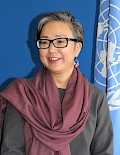
Director, Division for Prosperity, United Nations Institute for Training and Research (UNITAR)
Mihoko Kumamoto has over 20 years of professional experience in the development cooperation field and has been with the United Nations for 18 years. As Director of the UNITAR Hiroshima Office, Kumamoto leads training programmes for countries in Africa, the Arab States, Asia, and the Pacific and Indian Oceans on diverse topics, including peacebuilding, social entrepreneurship, and sustainable development. Kumamoto earned her Master’s in Economic Development at Columbia University. In 2001, she joined the United Nations Development Program and served its Vietnam Country Office as a Junior Professional Officer. In 2003, she moved to the UNDP Headquarters in New York and led various signature programmes that promoted the capacity development of institutions and individuals, including the Africa Adaptation Program. In 2011, Kumamoto worked for the UNDP Multi-Country Office for Samoa, the Cook Islands, Niue and Tokelau as Assistant Resident Representative for Crisis Prevention and Recovery. After the assignment, she re-joined UNDP Headquarters, and in 2012, Kumamoto moved to Jakarta to serve UNDP Indonesia as a Senior Advisor. She began her position as Head, and then Director, of the UNITAR Hiroshima Office in 2014. From July 2019, she became Director of the UNITAR Division for Prosperity.
Monte CASSIM
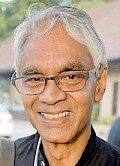 President, Akita International University
President, Akita International University
Monte Cassim, President of Akita International University and co-founder, EDEN (Emerging and Developing Economies Network) Seminars, started as a researcher at the Japan Center for Area Development (JCADR) in 1974. He joined Mitsui Construction Corporation’s Design Division in 1980 and from 1985 worked for the United Nations Center for Regional Development (UNCRD), as Coordinator of the Industrial Development Unit and the Urban Development and Housing Unit, as well as the Strategic Assistance Program for Latin America and Indonesia. He was seconded from UNCRD to the Social Infrastructure Division of the Asian Development Bank from 1986-1987, to work on a joint program on urban development for impoverished communities. Cassim was professor (Health, Environment and Life Science) at Ritsumeikan University from 1994 to 2018. From 2004-2013, he was Vice-Chancellor of Ritsumeikan Trust and concurrently President of Ritsumeikan Asia Pacific University (APU) for six of them (2004-2010). In 2018, he was appointed as the first President of Shizenkan University and professor (Science & Technology Innovation) at its Graduate School of Leadership and Innovation, in Tokyo. He is also Specially Invited Professor at Kyoto University’s Graduate School of Medicine, where he heads the Biophotonics and Spectroscopy Laboratory.
His professional expertise covers architecture, urban engineering, industrial policy, conservation biology and health, environment and life science, with a particular research focus on developing “earth- and human-friendly” technologies. He is a “parish priest” proselytizing for Sustainability Science, and advocated the concept of “Inclusive Innovation” at the 2016 G7 Science and Technology Ministers’ Meeting, striving in particular to promote science and technology partnerships between Japan and emerging economies, epitomized by the Sri Lanka Innovation Platform (J-SLIP) launched in 2016. It has incubated 20 propulsive projects to-date, covering many of the 17 UN SDGs. Decades of work as a field scientist in conservation biology, working with Japanese and developing country artisans to build energy and water-related infrastructures to alleviate extreme poverty, and persuading young students to appreciate the wonders of nature, understand the finiteness of resources and be inspired by the resilience of the human spirit, Cassim brings a vast multi-disciplinary vision to the AFLP/BG-Net.
Peter H. RAVEN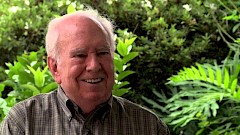
Emeritus President, Missouri Botanical Garden
Peter H. Raven, a leading botanist and advocate of conservation and biodiversity, is president emeritus of the Missouri Botanical Garden and George Engelmann Professor of Botany Emeritus at Washington University in St. Louis. For more than 39 years, Dr. Raven headed the Missouri Botanical Garden, an institution he nurtured to become a world-class center for botanical research, education, and horticultural display. During this period, the Garden became a leader in botanical research and conservation in Latin America, Africa, Asia, and North America.
Dr. Raven first realized in the mid 1960s that the rapid growth of the human population, consumption, and the spread of polluting technologies were threatening biological diversity to a degree that had not been realized earlier. He soon became an outspoken advocate of the need for conservation throughout the world based on efforts to attain sustainability and social justice everywhere, and has received numerous prizes and awards in recognition of these activities.
In 2001, Dr. Raven received the National Medal of Science, the highest award for scientific accomplishment in the United States. He has been president of the American Association for the Advancement of Science, Sigma Xi, the American Institute of Biological Sciences, and a number of other organizations. He served for 12 years as Home Secretary of the National Academy of Sciences, to which he was elected in 1977. He is also a member of the American Academy of Arts and Sciences and of the American Philosophical Society, of the academies of science in a number of other countries, including China, Russia, the U.K., Brazil, and Australia.
For 25 years, Dr. Raven served as co-editor of the Flora of China, a joint Chinese-American international project that resulted in the production of a contemporary, 49-volume account on all the plants of China, 31,500 species, completed in 2014. He has authored or coauthored numerous books and publications, both popular and scientific, including Biology of Plants, the internationally best-selling textbook in botany and Environment, a leading textbook on the environment. Dr. Raven received his Ph.D. from the University of California, Los Angeles, in 1960 after completing his undergraduate studies at the University of California, Berkeley. He has held both Guggenheim and MacArthur Fellowships.
Phillip DOUGLAS
Director of Horticulture and Center for Global Initiatives
A native Kentuckian, Douglas began his career in horticulture working for the historical Spring Grove Cemetery and Arboretum in Cincinnati, Ohio, and most recently as the director of plant collections for the Chicago Botanic Garden. He received a Bachelor of Science in horticulture from the University of Cincinnati and a Master of Public Administration from Eastern Kentucky University. As director of horticulture at Denver Botanic Gardens, Douglas manages a team of esteemed horticulturists overseeing one of the world’s most diverse plant collections. Douglas is a member of the International Oak Society, International Plant Propagators Society, American Public Garden Association and International Dendrology Society. He currently serves as the chair of the Plant Collecting Collaborative, a group of public gardens dedicated to plant conservation through exploration expedition work around the globe.
*Image via https://www.publicgardens.org/news/article/phillip-douglas-named-director-horticulture-and-center-global-initiatives
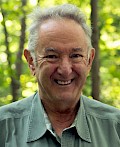 Stuart PIMM
Stuart PIMM
Doris Duke Chair of Conservation Ecology, the Nicholas School of the Environment, Duke University
Stuart Pimm is a conservation ecologist of world renown. Though a scholar with a prolific publications record in some of the most prestigious scientific journals, he is also a powerful communicator, able to reach out to both the broader public as well as to legislators and policy makers. His early work on computational ecology led to a deep understanding of Food Webs across and within trophic levels and their inter relationships with environmental factors. His extensive body of work is based on scientific rigor, and his theoretical calculations and hard empirical observation provide the scientific foundations for his advocacy. Dr. Pimm’s award-winning NGO, Saving Nature, which works in Latin America, Africa and Asia, has just extended its mandate to advocate for biodiversity conservation to cover all of nature. This NGO’s activities will delve deeper into understanding the richness of life on earth and reach out across 3 of 9 continents and generations, to impress upon all the importance of conserving ecological habitats in all corners of the world.
Dr. Pimm is the recipient of numerous international awards. Notably, he is the recent recipient of the 2019 International Cosmos Prize, a prestigious annual award presented by the Expo'90 Foundation “to honor those who have, through their work, applied and realized the ideals which the Expo ‘90 Foundation strives to preserve”, namely, the “harmonious coexistence between Nature and Humankind”.
Professor Pimm received his BSc degree from Oxford University in 1971 and his Ph.D from New Mexico State University in 1974. He is the author of over 270 scientific papers and four books. The Institute of Scientific Information has ranked him as one of the most highly cited environmental scientists for over a decade.
AFLP Secreatariat Team
Nassrine AZIMI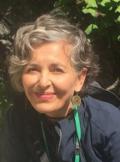
AFLP Team Leader
Nassrine Azimi is co-founder and coordinator of the Green Legacy Hiroshima Initiative, a global campaign to disseminate and plant worldwide seeds and saplings of trees that survived the 1945 atomic bombing of Hiroshima. She is also co- founder and chair of the EDEN (Emerging and Developing Economies Network) Seminars.
At the United Nations Institute for Training and Research (UNITAR) where she is currently a senior advisor, Dr. Azimi established the Institute’s Hiroshima Office for Asia and the Pacific in 2003. Prior to that she was UNITAR’s coordinator of environmental training programs, deputy to the executive director, chief of the Institute’s New York Office, and for 12 years head of UNITAR’s Board of Trustees’ secretariat in Geneva, throughout the Institute’s restructuring and revival.
Currently a visiting professor at Hiroshima Shudo University and adjunct professor at Doshisha Women’s College in Kyoto, Azimi was visiting scholar at New York’s Columbia University (2003) and at the University of California in Los Angeles/UCLA (2016-2018), a member of the International Scientific Advisory Board (ISAB-COOP), Ecole Polytechnique Fédérale de Lausanne (EPFL) in Switzerland, and the advisory committee of the Hiroshima Peace Media Center (HPMC) in Japan. She has a BA in political science from the University of Lausanne, Switzerland, an MA in international relations from the Geneva Graduate Institute of International Studies, a second MA in urban studies from the School of Architecture, University of Geneva, and a doctorate in cultural studies from the Graduate School of Integrated Arts and Sciences, Hiroshima University. Azimi has published extensively on UN peacekeeping and peacebuilding, post-conflict reconstruction, environmental and cultural governance, and Asia. Her latest book, ‘The United States and Cultural Heritage Protection in Japan (1945-1952)’ was released by Amsterdam University Press in 2019.
Humaira KHAN-KAMAL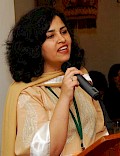
AFLP Coordinator (Book)
Humaira Khan-Kamal has worked with UNITAR since 1996, as a UNITAR Special Fellow, as Training Associate, and from 2012 to 2016 as Senior Advisor to the UNITAR Fellowship for Afghanistan. In her first assignment at UNITAR she was directly involved in developing the UNITAR New York Office Work Program for Government Officials based in New York. She was responsible for research, development, planning, and coordination of several training programmes in specific thematic areas. Her projects included annual intensive courses on international trade, public-private partnerships for sustainable development, and policy issues in information and communication technologies, as well as workshops on basics in technology for senior policy makers and negotiators.
With the opening of the UNITAR Hiroshima Office in 2003, Khan-Kamal was involved in the overall design, launch, and management of the Fellowship project on post-conflict reconstruction and training in Afghanistan, and served as Program Leader till 2011. Following that, as Senior Advisor, she remained involved in strategic planning and curriculum development of the program, in addition to delivering specific modules of training. Khan-Kamal was a Government of Japan scholar to the Lahore University of Management Sciences where she earned her master’s in business administration. Her post-graduate work was focused on non-profit management and community empowerment projects. Prior to her work with UNITAR she worked with a non-profit project to set up the primary cancer care hospitals in Pakistan – Shaukat Khanum Memorial Cancer Hospital & Research Center. She is currently working as CEO of a Health-care Practice company in the US.
Sabahuddin SOKOUT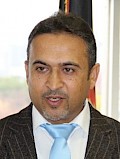
AFLP Coordinator (Botanical Gardens Network)
Sabahuddin Sokout is the UNITAR Focal Point in Afghanistan. Prior to UNITAR, he was Administration and Finance Officer at the Baz Construction Unit for Rehabilitation of Afghanistan (BCURA) and Liaison Officer of Foreign Affairs in the Academy of Science of Afghanistan. He graduated from the Faculty of Economics of Kabul University in 1997. He has taken part in many training courses on computers, accounting, planning, and environmental issues. As a 2005 Cycle Fellow, he worked on the project to develop a Questionnaire for conducting a Benchmark Survey for Irrigation Projects in four provinces for the BCURA. Sokout joined the UNITAR Hiroshima Fellowship for Afghanistan as a Fellow in 2005, as a Coach in 2006 and 2007, and as an Afghan Resource Person in 2008.
Taiga NISHIMURA
Research Assistant
Taiga Nishimura graduated from Hiroshima Shudo University with a Bachelor of Art degree in English Language and Literature. Taiga studied international relations and sustainability at Arizona State University in an exchange program before he joined UNITAR Hiroshima Office as an intern in September 2018. During his university years, he worked as a volunteer and an intern for NGOs that focus on international peacebuilding. He will start his graduate study in International Development with Conflict and Humanitarian Action at the University of Bath, the United Kingdom, in October 2021.
Emerging and Developing Economies Network (EDEN) Seminars Secretariat Team
Cody MARSCHALK 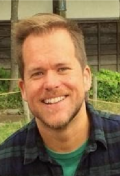
Born and raised in the American South, Cody Marschalk attended Auburn University where he studied English Literature and Asian Studies. After graduation in 2011, he interned with the Disney company in Orlando, Florida, later becoming a Frontline Service Advisor and Cast Member Orientation Facilitator at Disney University. Having his fill of the tourism industry, he returned to Auburn University’s Graduate School of Education for a master’s degree in Higher Education Administration, specializing in International Student Issues and Global Education, and simultaneously acquiring his master’s certificate in Teaching English as a Second Language (TESL) in 2016.
Cody subsequently joined the Japan Exchange & Teaching (JET) Program to expand his international experiences, and moved to Fukushima, Japan where he taught English in high schools around the prefecture for two years, deeply enjoying the rich culture and natural beauty of the Tohoku region. In 2018, he moved to Tokyo to join the opening team of a new start-up MBA graduate school, Shizenkan University, where he currently works as an International Student Recruiter and Advisor. In May 2019, he joined the EDEN Seminars team as Communications Coordinator.
Faezeh MAHICHI 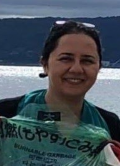
Faezeh Mahichi is Associate Professor at Ritsumeikan Asia Pacific University (APU), Japan since 2013. Her journey from the Nano-world to Macro- Reality started from pursuing her master and PhD studies in the field of nanotechnology in Tokyo Institute of Technology (Tokyo Tech), Japan, to recent years working as a researcher and educator in environmental studies and the circular economy at APU, a university hosting students from more than 90 nationalities.
Dr. Mahichi’s teaching and research interests are on the importance of research and education of environmental systems in a holistic manner in order to reach the state of sustainability. Currently, she is studying the impact of different practices, technological implementations and developments on natural environment. She is interested in the study of traditional knowledge and practices, circular economy, sustainable development and how to decrease humanity’s ecological footprint, pollution and depletion of natural resources through environmental education and increase of environmental awareness. She is currently enjoying teaching, researching and gardening in the coastal city of Beppu, Japan.
Kaitu’u ‘i Pangai FUNAKI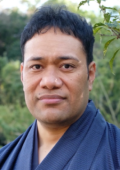
A graduate of Ritsumeikan Asia Pacific University (APU), Dr. Funaki has worked in university administration and international marketing of Japanese higher education. He also holds an MBA in International Marketing and Business and a PhD degree in Asia Pacific Studies (Politics and International Relations). He founded the Dignified Pacific Initiative (DPI) in 2018 based on his relational theory of Reciprocity and Generosity, and is dedicating his life as a Steward guarding the Dignity of Oceania with the goal of rekindling this dignity through the transformation of self-perceptions. He is working with individuals and organizations on similar wavelengths to empower talented young leaders around the world and supporting them in identifying traditional knowledge to be redefined and transformed for the next generation.
Saeeda RAZICK 
Having recently completed her Advanced Level Examination in Science and Mathematics, Saeeda hopes to pursue an undergraduate degree in Mechanical Engineering.
Growing up in Sri Lanka, a small island surrounded by the Indian Ocean, she primarily lived in the busy cityscape of Colombo. She obtained her primary and secondary education from Bishop’s College and was involved in many clubs and societies that helped her develop skills in leadership and project management.
She was the Deputy Head Prefect and volunteered with leading community service organizations within school such as the United Nations and Interact Clubs. The community service projects that came along with such volunteering allowed her to understand the depth of the unequal distribution of basic resources as she traveled to many parts of the island. These experiences contributed to her current dream; which is to be a part of bridging this gap and help develop her country through science and technology.
Partner Institutions
(In alphabetical order)
Botanic Gardens Conservation International 
Denver Botanic Gardens 
Embassy of Afghanistan, Tokyo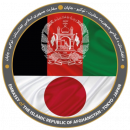
Green Legacy Hiroshima
San Diego Botanic Garden
The EDEN Seminars


